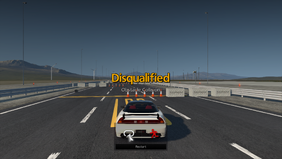Common Failure Patterns in Racing Simulations
Racing simulation failures typically fall into several distinct categories that can be systematically analyzed and addressed through targeted practice and strategic adjustment. Understanding these patterns enables players to identify their specific weaknesses and develop customized improvement strategies.
Collision-based failures represent the most frequent type of mistake in Gran Turismo, often resulting from inadequate braking distance calculation, poor cornering technique, or insufficient awareness of track boundaries. These failures provide valuable feedback about spatial awareness, timing precision, and risk assessment capabilities in high-pressure gaming situations.
Wrong-way incidents and course deviation failures highlight navigation and concentration challenges that affect both novice and experienced players. These mistakes often occur during complex track sections or when players become overly focused on speed optimization at the expense of directional awareness and course adherence.




